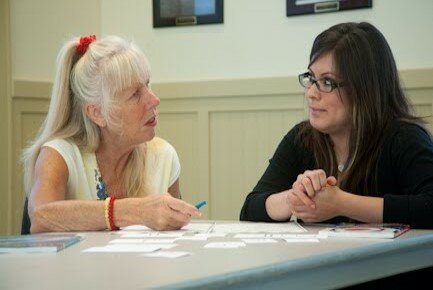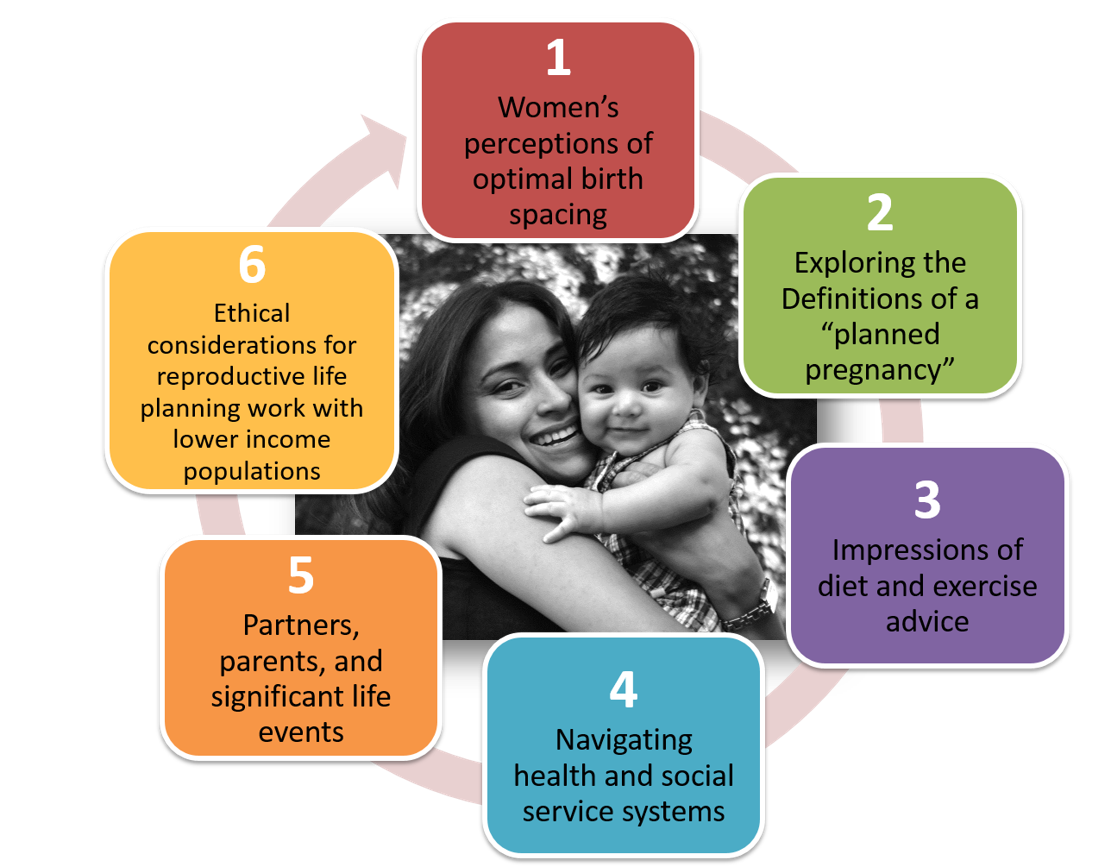Tutor-facilitated Digital Literacy Acquisition in Hard-to-Serve Populations

This research effort focused on examining the digital literacy acquisition process among vulnerable adult learners who participated in digital literacy programming offered through partnerships in the Broadband Technologies Opportunities Program (BTOP) grant entitled "Learner Web Partnership: A Multi-State Support System for Broadband Adoption by Vulnerable Adults." That grant was focused on addressing the barriers to broadband use in vulnerable and digitally excluded populations. Together, these efforts sought to better understand how individuals (such as low-income adults, unemployed adults, adults without a high school education, immigrants and non-native English speakers, seniors, incarcerated adults and ex-offenders, etc.) acquire digital literacy.
Partner sites who implemented digital literacy programming included: the City of Richmond Public Library Literacy for Every Adult Program in California, the Lindy Boggs National Center for Community Literacy at Loyola University and Goodwill Industries of South East Louisiana in New Orleans, the Minnesota Literacy Council, the Regional Adult Education Network at Cayuga Community College in New York state, the Literacy Coalition of Central Texas, and South Texas College.
This research was supported by a National Leadership Grant from the Institute of Museum and Library Services to Portland State University.
Tutor Ready: Free Online Resources for Literacy Tutors
Tutor Ready is a set of 50 short Learning Plans created for tutors who work with adults in reading. The research-based lessons teach strategies for assessing and tutoring adults in a variety of reading skills, including: phonemic awareness, decoding, fluency, vocabulary, and comprehension. Each strategy is illustrated by at least one video showing a literacy tutor working with a literacy learner.

After a short introduction that introduces components of reading through the lens of four learners, the Learning Plans are organized around 50 tutor questions such as “How can I help my learner recognize the same sound in different words?” and “How can I help my learner read with appropriate phrasing and expression?” Each question is answered with a small amount of written information, followed by a description of appropriate tutoring strategies related to the specific question. Tutoring strategies include images as well as video clips demonstrating the strategy. All of the information in Tutor Ready is based on reading research. Taken together, the bite-sized pieces of information combine to provide an excellent foundation for literacy tutors looking for strategies to help adult students improve their reading skills. Tutor Ready can be used with tutors in pre-service training as well as in in-service training after they begin to work with learners. All of the information can be accessed online and can be used individually or as part of group training.
Tutor Ready was created by Kathy St. John, Amy Prevedel, and Paul Heavenridge of Literacyworks in collaboration with Kathy Harris, Katherine Winter, and Will Caston at Portland State University in the Department of Applied Linguistics in the Literacy, Language, and Technology Research Group. Supported by funds from the U.S. Department of Education, Office of Career, Technical and Adult Education (OCTAE) through CFDA 84.2567T, LINCS Regional Resource Center Grants No. X257T060004 and V191B11005

WIC Project
The Learner Web team is working with the Women, Infants, and Children (WIC) Program to create professional development materials on periconceptual health topics. The project is taking research findings from interviews with Oregon WIC mothers and compiling them with birth certificate data on mothers enrolled in Oregon WIC. This information is then being used to create educational modules for WIC staff, with the hopes of broadening staff members' understanding of the mothers they work with.

On-Ramps to E-Health Portals
With support from the Community Health Fund, the On-Ramps to e-Health Portals project aimed to strengthen patient engagement with online health portals. The advantages of health portal use are numerous; patients are able to send messages to their doctors, review test results, refill prescriptions, and schedule appointments. On-Ramps to e-Health Portals sought to reduce barriers to health portal access by targeting low digital literacy and Spanish-speaking populations. Through partnership with the Wallace Medical Concern, the On-ramps team evaluated barriers to health portal. Insights from patient interviews were then used to create educational modules in Learner Web. The On-Ramps team then piloted these materials at the Wallace Clinic with tutor support.
Broadband Technology Opportunities Program

The Learner Web’s Digital Literacy Partnership was funded as a Sustainable Broadband Adoption project by the Broadband Technology Opportunities Program of the U.S. Department of Commerce. This project built on and extended the community of Learner Web partners to develop online content and blend it with offline services to strengthen community collaboration around lifelong learning, help youth and adults to transition successfully into postsecondary education and employment, and provide professional development and tutoring support in adult education.
The Learner Web Partnership proposed by Portland State University (PSU) involved coalitions in two states (Minnesota, New York), two regions (Central Texas and South Texas), and two cities (New Orleans, Louisiana and Richmond, California). The project increased broadband use among low-income, low-literate, ESOL, and other vulnerable populations by implementing Learner Web, an innovative online system of self-paced Learning Plans. Over 30 months, the project developed and implemented Learning Plans focused on digital literacy (at home, at work, and in the community), education on how to be an informed consumer of broadband technology, and orientation to career pathways. These Learning Plans were also available in Spanish.
Incarcerated Education Program (2012)
The New York County Correctional Facility used Learner Web as part of their Incarcerated Education Program. This implementation was particularly innovative because it gave inmates supervised access to the Internet and important connections to the outside world.

ELL-U Clubs Project
(2010-2013)
English Language Learner University (ELL-U) is a free, innovative and interactive national professional development network for practitioners who teach English as a second language to adults. Using the university as a metaphor, the ELL-U website provides teachers with access to high quality professional development activities such as online courses, face-to-face and online study circles, and access to experts in the field through discussions and office hours. In November 2011, additions to the ELL-U site were the ELL-U Clubs. Learner Web provided support for sustained professional development through Learning Plans for teachers in the ELL-U Clubs.

Next Generation Learning
Challenges (NGLC) Project
Next Generation Learning Challenges (NGLC) is an initiative that supports using innovative technology to improve college readiness and completion, particularly for low-income young adults. Selected from a field of more than 600 Wave 1 pre-proposals and 50 finalists, the University of the District of Columbia Community College (UDC-CC), Portland State University, South Texas College, and St. Paul College used Learner Web to implement alternatives to developmental courses by providing students with innovative blended extracurricular learning supports. The grant addressed the college readiness of high school students in the District of Columbia and at public high schools in South Texas by infusing college learning competencies into the high schools to support reading, math and writing skills consistent with college expectations.
